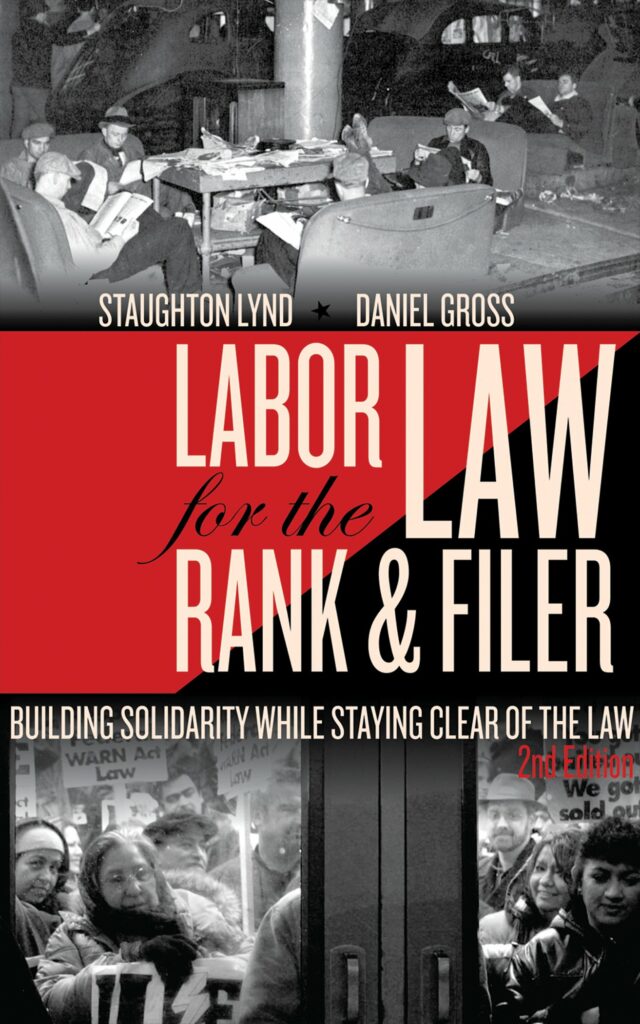
Authors Staughton Lynd and Daniel Gross wrote Labor Law for the Rank & Filer: Building Solidarity While Staying Clear of the Law to help workers interested in unionizing get more accomplished when the law is one their side — and to protect themselves when the law is against them.
The legal handbook explains the most relevant aspects of labor legislation and offers workers a framework for how to protect themselves while putting pressure on management. Significantly, the book does not recommend legal protection as the sole method of gaining power for workers. Instead, it encourages workers “not to seek a legal solution but to use those legal protections that are available to seek a solution through direct action.”
Lynd is a lawyer specializing in employment law. Industrial Worker recently spoke with him about Labor Law for the Rank & Filer and how workers can use the law to their advantage when fighting for power in the workplace. The interview below has been edited for clarity and length.
Industrial Worker: Why should workers learn labor law?
Staughton Lynd: Nature has given us two hands, and the problems workers face call for a two-sided response: on the one hand, protective labor law; and on the other, the readiness to take action which labor law purports to protect.
Section 7 of the National Labor Relations Act , as amended, promises workers the “right to self-organization, to form, join, or assist labor organizations, to bargain collectively through representatives of their own choosing, and to engage in other concerted activities for the purpose of collective bargaining or other mutual aid or protection.”
However, these glowing words must be accompanied by a readiness on the part of workers to use direct action. For example: Workers demanding an eight-hour day and simply walking off the job after eight hours.
How can workers use legally protected and unprotected organizing activity together for the best result?
Section 7 must be coordinated with well-considered direct action. In order for workers to be able to enforce the law through their own direct action, they must not accept contract clauses in which they agree not to engage in strikes, slowdowns or other direct action during the life of the contract. Were they to agree to such contract language, the exciting words of Section 7 lose their might. Instead, workers give up the capacity to take all-important legally protected activity.
How do you suggest workers push for more protections when they are not covered by the National Labor Relations Act?
Gig workers do not have the protection of Section 7 because they are not regarded as employees. But neither are they prevented by language in a collective bargaining agreement from taking collective direct action.
Interested in learning more? Find Labor Law for the Rank & Filer in the IWW Store.
